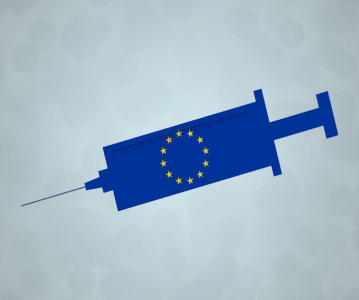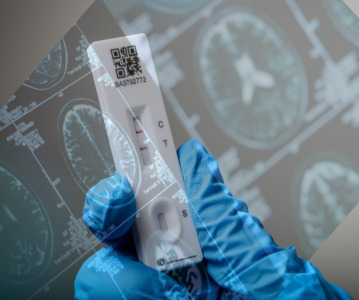Akers Biosciences allowed US Patent for heparin/PF4 antibody detection

The newly allowed Patent covers Akers Bio's proprietary protein preparation which serves as the antigen and biologically active component of the tests.
Akers Biosciences has announced that the United States Patent and Trademark Office has allowed a patent covering Akers Bio's proprietary methods for detecting heparin/platelet factor 4 antibodies.
Akers Bio's flagship PIFA Heparin/PF4 Rapid Assay and PIFA PLUSS PF4 tests were designed to quickly determine if a patient being treated with the blood thinner heparin may be developing heparin-induced thrombocytopenia (HIT). This clinical syndrome reverses the heparin's intended therapeutic effect and transforms it into a clotting agent. Patients suffering HIT are at risk of developing limb- and life-threatening complications, so the timely test result provided by the company's Heparin/PF4 devices is paramount to effective and cost-efficient clinical decision making.
Akers Bio's Heparin/PF4 devices determine if a patient may be developing HIT by identifying the presence of heparin/platelet factor 4 antibodies. The newly allowed Patent covers Akers Bio's proprietary protein preparation which serves as the antigen and biologically active component of the tests.
"Having developed the only FDA-cleared rapid manual assays for determining if a patient may be developing HIT, it is essential to ensure the Company has multi-faceted, robust patent protection that further underpins their future value," said Raymond F. Akers, Co-Founder and Executive Chairman. "This Patent is particularly important because it protects the antigen that gives our tests their superior accuracy. With published studies that demonstrate that our tests never deliver a false positive result, we believe them to be the most accurate available way to rule out HIT," continued Dr Akers.
Related News
-
News Patients vs Pharma – who will the Inflation Reduction Act affect the most?
The Inflation Reduction Act brought in by the Biden administration in 2022 aims to give better and more equitable access to healthcare in the USA. However, pharma companies are now concerned about the other potential costs of such legislation. -
News CPHI Podcast Series: What does the changing US Pharma market mean for industry and patients alike?
In this week's episode of the CPHI Podcast Series Lucy Chard, Digital Editor for CPHI Online is joined by James Manser to discuss the political and market changes in the US pharma field. -
News CPHI Barcelona Annual Report illuminates industry trends for 2024
The CPHI Annual Survey comes into it’s 7th year to report on the predicted trends for 2024. Over 250 pharma executives were asked 35 questions, with their answers informing the industry landscape for the next year, spanning all major pharma marke... -
News Which 10 drugs are open to price negotiation with Medicare in the USA?
The Centres for Medicare & Medicaid Services, under the Biden administration in the USA, has released a list of the 10 drugs that will be open to price negotiations as part of the new legislation under the Inflation Reduction Act (IRA). -
News EU Medical Devices Regulation causes unintended disappearances of medical devices for children, doctors state
Doctor groups and associations have appealed to the EU to correct the EU Medical Devices Regulation law that may cause unintended shortages of essential drug and medical devices for children and rare disease patients. -
News 10 Major Drug Approvals So Far in 2023
Last year, 37 novel drugs were approved by the FDA, this was a high number for such a category, and covered many fields including oncology, demonstrating how promising further research is, and how it is only continuing to build. To date, there are alre... -
News Detecting Alzheimer's disease with a simple lateral flow test
A novel rapid diagnostic test for early-stage Alzheimer's disease has been developed using a biomarker binder from Aptamer Group along with technology from Neuro-Bio, the neurodegenerative disease experts. -
News CPHI Podcast Series: outsourcing and manufacturing trends
Listen to the CPHI Podcast Series this June to hear Gil Roth of the PBOA speak with Digital Editor Lucy Chard about the biggest trends and topics to watch in pharma outsourcing and manufacturing at the minute.
Position your company at the heart of the global Pharma industry with a CPHI Online membership
-
Your products and solutions visible to thousands of visitors within the largest Pharma marketplace
-
Generate high-quality, engaged leads for your business, all year round
-
Promote your business as the industry’s thought-leader by hosting your reports, brochures and videos within your profile
-
Your company’s profile boosted at all participating CPHI events
-
An easy-to-use platform with a detailed dashboard showing your leads and performance







